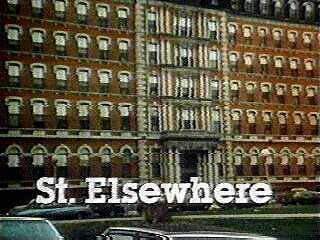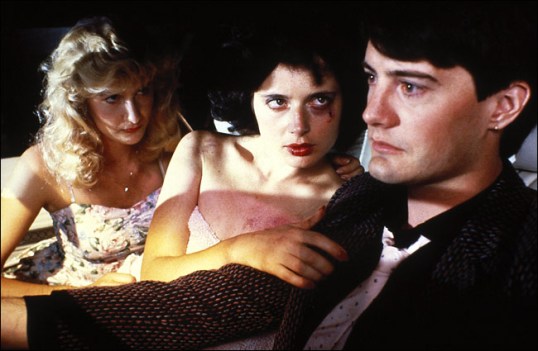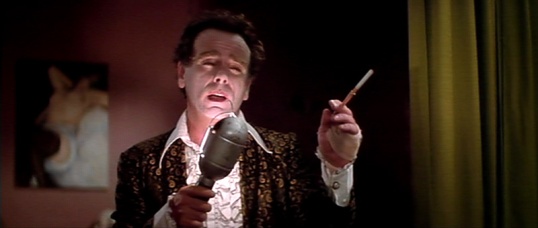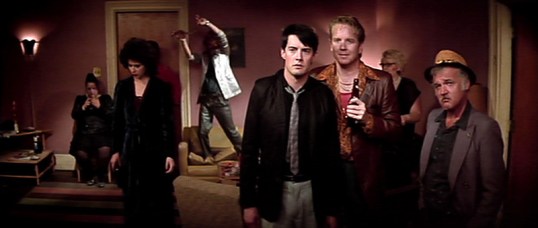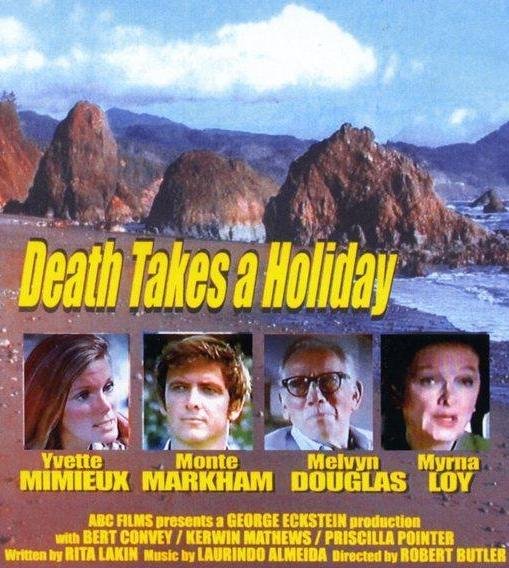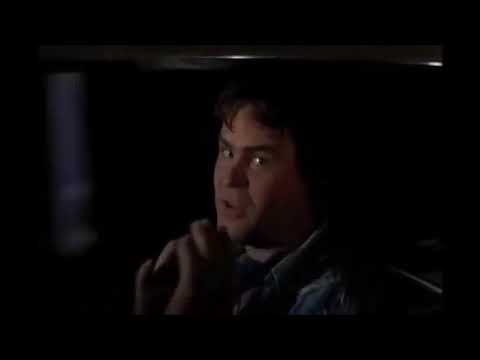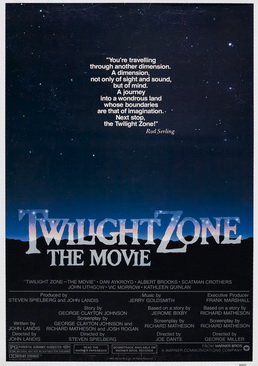
In 1977’s Looking for Mr. Goodbar, Diane Keaton plays Theresa Dunn.
A neurotic and single woman who has never emotionally recovered from her childhood struggle with scoliosis, Theresa is trying to find herself in the wild and promiscuous world of the 1970s. After losing her virginity to a condescending college professor (Alan Feinstein), Diane goes on to have relationships with a needy social worker (William Atherton) and an hyperactive petty criminal (Richard Gere). During the day, she teaches deaf children and she’s good at her job. She even manages to win over the distrustful brother (Levar Burton) of one of her students. At night, she hits the bars. She buys drugs from the neighborhood dealer (Julius Harris). She tries to read the book that she always carries with her. (Some nights, it’s The Godfather and other nights, it’s something else.) She picks up strange men and takes them to her roach-infested apartment. One of those men, Gary (Tom Berenger), turns out to both be a bit insecure about his masculinity and also totally insane….
Looking for Mr. Goodbar is an adaptation of a novel that was inspired by the real-life murder of a New York school teacher named Roseann Quinn. The book was best seller and, just as he had with a previous best-selling true crime novel, director Richard Brooks bought the rights and both wrote and directed the film. Diane Keaton, who at that point was best-known for playing Kay Adams in The Godfather and for appearing in Woody Allen’s comedies, took on the demanding role of Theresa and, whatever one may think of the film itself, it can’t be denied that Keaton gives a brave performance as the self-destructive Theresa. In fact, I would say it’s one of Keaton’s best performances, outside of her work with Woody Allen and The Godfather Part II. If she had been played by a lesser actress, Roseann could have been unbearable. As played by Diane Keaton, though, she’s everyone’s best friend who just need some time to find herself. The viewer worries about her and wants to protect her as soon as they see her, making her ultimate fate all the more tragic.
As for film itself, I’ve watched Looking For Mr. Goodbar a few times and I’m always a little bit surprised by how bad the movie actually is. The film actually gets off to a strong start. The scenes between Theresa and the professor make for a sensitive portrait of a repressed young woman finally getting in touch with her sexuality and, in the process, discovering that she deserves better than the man she’s with. But once Theresa moves into her apartment and starts hitting the bars at night, the film takes on a hectoring and moralistic tone that leaves the viewer feeling as if the film is blaming Theresa for the tragedy that’s waiting for her at the end of the story. Diane Keaton and Tuesday Weld (who plays her sister) both give excellent performances but everyone else in the film either does too much or too little. This is especially true of Richard Gere, who is very hyperactive but still strangely insubstantial in his role. (Whenever Richard Gere appears on screen, one gets the feeling that they could just walk right through him.) A scene where Gere jumps around the apartment is meant to be disturbing but it’s more likely to inspire laughter than chills.
It’s an overly long film and the moments in which Theresa has dark, sexually-charged fantasies are never quite as powerful as the film obviously meant for them to be. (Brian Dennehy makes his film debut as a doctor who kisses Theresa’s breast during one of her fantasies.) As opposed to the empathy that he brought to In Cold Blood, one gets the feeling that director Richard Brooks didn’t like anyone in this movie and that he was more interested in Theresa as a cautionary tale than as a human being. With this film, Brooks seemed to be standing athwart the Sexual Revolution and shouting, “Stop!” That said, the film’s final moments are genuinely disturbing and difficult to watch. It’s the one moment where Brooks’s lack of subtlety pays off. Those last minutes are about as horrific as anything you could expect to see.
As for Roseann Quinn, her killer was eventually arrested. John Wayne Wilson hung himself in prison, 5 months after murdering her.

